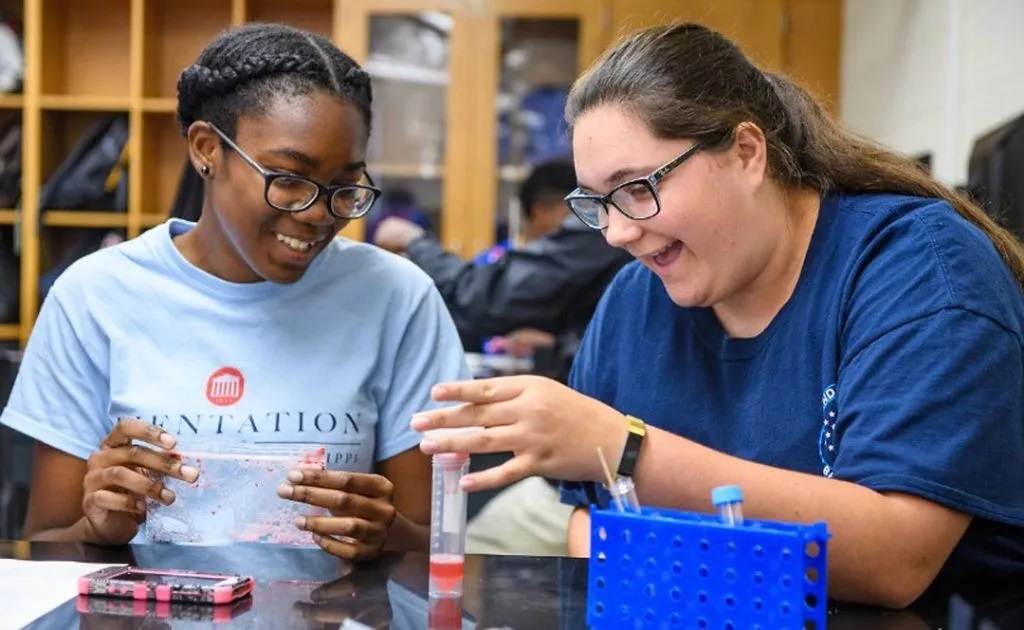
Stephen
Terry, Director


Worship
That Never Ends
Commentary
for the March 23, 2024, Sabbath School Lesson
 "Lord,
who may dwell in your sacred tent? Who may live on your holy mountain? The one
whose walk is blameless, who does what is righteous, who speaks the truth from
their heart; whose tongue utters no slander, who does no wrong to a neighbor,
and casts no slur on others." Psalm 15:1-3
"Lord,
who may dwell in your sacred tent? Who may live on your holy mountain? The one
whose walk is blameless, who does what is righteous, who speaks the truth from
their heart; whose tongue utters no slander, who does no wrong to a neighbor,
and casts no slur on others." Psalm 15:1-3
As a child, from kindergarten
through my senior year of high school, I attended public schools. Thanks to
being part of the Baby Boom generation, the schools were full, and the high
school I attended was one of the largest in the state. In fact, there were four
large public high schools in our county and resources were often spread thin
throughout the school system. I remember enrolling to learn German in junior
high school. There were thirty students in the class and only six sets of
teaching materials. It was difficult at best to learn anything under those
conditions. If it was frustrating for us students, it must have been disheartening
for the teacher to struggle with such limitations. Fortunately, we now have
online learning programs like Duolingo and Babbel so that language learning is
open to anyone with internet access. As a result, according to statistics on the
Duolingo website, more students are learning other languages online nationwide
than are learning them in a standard classroom.
One aspect of public-school
education that may have arisen from the limited resources or may have been
simply to teach teamwork skills happened in science classes that required lab
work. The first day in the lab was filled with anxiety. That was the day that
lab partners were assigned. Each student would be teamed with one or more other
students to complete assigned lab experiments. By high school, everyone knew
who those students were who dedicated themselves to learning and who those were
who would sit in the back of the classroom and coast, cracking jokes about
other students and the teacher. Sometimes the teacher would assign lab partners
based on similar personalities. Other times it would be random. This meant that
there might be audible moaning when an A average student found themselves
paired with someone who could care less about science and the realization hit
that they would be working alone for all the help the other student would be
willing to give.
At times, a poor attitude about
learning was not the student's fault. It could be the result of a difficult
home life. Divorce, abuse, and abandonment issues were too common. While drug
use was not as common back then, alcoholism did as much damage to families as
drug abuse does now. In fact, it still does. Private schools were able to
refuse enrollment to students who did not measure up to a specified standard,
but public schools were required to offer education to all comers. Education
was even mandatory up to a certain level, and public schools were the option of
last resort for those who had little interest in learning but had to attend
anyway. When students who want to learn are stirred in together with those who
do not, it can be difficult even on the best of days. But when those students
are forced to work together as partners, it can be hard for the gifted student who
is intent on maintaining a grade point average that will get them into the best
colleges and frustrating for the student who has no interest in further
education and will be happy to land whatever job comes to hand, a job that
probably does not require much knowledge of chemistry, biology or advanced
mathematics. To be fair to both students, these different goals should be recognized
in such a way that both can find fulfillment in school and afterwards.
We often labor under the
delusion that there is a perfect life that all should strive for where uniformity
is the key to happiness. This has had a large part to play in how our education
system has developed. It is structured to produce the ideal modern citizen. The
goal is similar whether fostered by a democratic educational system or a
totalitarian one. Each strives for a similar product. Inculcated with the moral
values of their culture, each student is encouraged to find happiness within
that cultural matrix, and their future is shaped by their conformity to those
values. Those values evolve as society's needs change over time, and the
schools are expected to provide updated products as Citizen
2.0 or 3.0 etc. Sometimes those updates occur naturally, and at other times
they must be forced. "Brown vs. the Board of Education" forcing the integration
of the public school system in the United States is an example of the latter.
Despite lack of funding and overcrowding, this is one thing I admire about
public schools. When change must come, they work out how to accomplish the
update. Whereas private schools are often redoubts resisting changes that are
occurring in society. Some even refuse those students who would embrace the change.
Labels such as heretics or liberals are given to these students depending on whether
the private school is religious or secular. We already have too much
divisiveness in society. We do not need schools that only add more.
Education should inculcate
aspiration, a desire to continually seek self-improvement. The idea that one
finishes a certain number of years of education and then never again cracks a
book or seeks to learn a skill they did not know before is a tragedy for both
the individual and society. The self-enrichment of continuing to learn and grow
new skills also enriches the lives of those we associate with and the overall
richness of culture in our community. This is one of the reasons that in my seventies,
I am continuing to learn the German that I struggled with so much in my teen
years. I could ask myself "Why?" After all, how many more years do I have left
that continued learning could affect. Why shouldn't I just kick back and rest
during the years left to me. But I have learned during my life that if I did
so, the remaining years would be nowhere near as glorious as they would be if I
kept striving for new experiences and new knowledge.
This brings me to a conversation
I had with my wife about Psalm 15, and the verses I cited at the beginning of
this commentary. We discussed whether anyone was like the person mentioned who
was so perfect in all their ways. We decided the person described is an
aspirational ideal. Certainly, King David, the reputed author of the Psalm was
not such a person. He committed adultery with another man's wife and then to
prevent the evil deed from being discovered, he murdered the man and took her
for his own wife. If we swap the numbers in 15 around,
we get 51. And if we go to Psalm 51, we discover David's prayer of repentance
as he seeks to re-establish himself on the path of righteousness. Why would he
do this? Why didn't he simply say, despite all the other women he had, "I
finally have the woman of my dreams. Let us live out our lives together in one
another's arms." But David aspired to be like the man in Psalm 15. He was
committed to that ideal, and even when he stumbled and fell off that path, he
sought to return to it. This may be one of the most important principles we can
learn.
The Bible tells us repeatedly
that we can look forward to eternal life because of God doing so much to open
the doors to paradise to us. But if we stopped learning and growing at the
point we were no longer forced to do so in school, and if we were to look at
our level of happiness since graduation, will we find enough stimulation there
to keep us from boredom over the course of eternity? Even now, some self-medicate
with alcohol and drugs to deal with the depression and boredom of life. Some
give up entirely on finding what they need in this life. While some see verses like those in Psalm 15 as demanding
obedience to a divine autocrat and go about demanding everyone obey or be damned.
That does not fit with God's loving character. He takes no delight in the death
of these discouraged souls.[i] He
is love personified[ii] and not willing that
anyone should perish,[iii]
going in search of every straying individual,[iv]
offering healing and restoration.
While it hurts our heart when those
who profess to love God fall into corruption and sin, we should not succumb to the
desire to weed out every sin to create a theocratic paradise during our short
lifetimes here on earth. If we did so, there would be no one left alive, and in
the end with only us remaining, we would not have accomplished our purpose of
rooting out the evil, for we, too, are sinners.[v]
Heaven will be a different kind of place. Since it is sinless, any perceived
skill we feel we may have at eradicating sin will be useless there. Therefore,
it is not necessary to spend so much time training ourselves for that purpose. But
we can train for eternal happiness. What will make that eternity delightful is
our ability to love one another. That is something we can begin doing now. Instead
of throwing stones at one another over our faults, let us do as was suggested
to Jesus in the wilderness. Let us turn those stones to bread to feed one
another in our need. That is a metaphor that will bring joy to everyone's life
no matter how long it lasts.